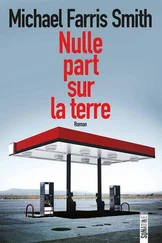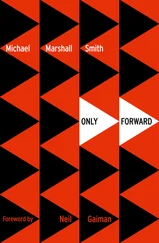William French MW (Failed) climbed into the cab called by the celebrated columnist, Manfred James. He was accompanied by Freddie de la Hay, a Pimlico Terrier, a ‘new dog’, whose small canine life was now beginning an important and challenging phase. Not much happens to dogs; they lead their lives around our feet, in the interstices of more complex doings, from which perspective they look up at the busier human world, eager to participate, eager to understand, but for ever limited by biology and the vagaries of evolution to being small-part players in the drama. Every so often a particular dog might rise above this limited destiny, might perform some act of loyalty that attracts human recognition and praise. But for most dogs such saliences are rare, their lives being punctuated by nothing more significant than the discovery of an intriguing smell or the sight of a rabbit or a rat - usually frustratingly inaccessible - or by some minor territorial challenge that requires a bark. Nothing much, really, but for dogs, their lot, their allocation.
‘Pimlico,’ said William to the taxi driver, and gave the address of Corduroy Mansions.
The driver nodded. ‘Nice dog,’ he said. ‘Got one myself. A bit like that but smaller. What make is he, guv?’
‘He’s a Pimlico Terrier,’ William replied.
They were moving off now, and he waved to Manfred James, standing at his gate. There was a look of relief on the columnist’s face, which irritated William. One does not wave goodbye to one’s dog with a broad smile on one’s face.
‘Pimlico Terrier?’ repeated the taxi driver, craning his neck to look into the mirror. ‘Bit big for a terrier, if you ask me. Are you sure?’
Freddie de la Hay was sitting at William’s feet, looking up at his new carer (as Manfred James had described the relationship). The dog seemed anxious. Understandable, perhaps, in the circumstances: being passed from one carer to another is a traumatic experience for any dog, even the strongest and most secure. To them, we are God incarnate, and to have one god exchanged for another is as stressful as any change of religion can be in the human world.
‘Never heard of a Pimlico Terrier,’ continued the taxi driver. ‘You get it by mixing something up? Crossing one breed with another?’
William found his irritation increasing in the face of this close examination by the driver. While he was as prepared as anybody to enter into conversation with a taxi driver, he felt that there were circumstances in which a driver should be able to detect reticence on the part of a fare. It should be part of the famous knowledge that taxi drivers went on about. It was all very well knowing the quickest way from an obscure street in one part of London to an equally obscure street in another, but it was important, too, to understand the mood of the person in the back of the cab and to know when an atmosphere of Trappist silence would be appreciated. Not all taxi drivers shared that insight.
For his part, William had devised a good way of avoiding talking, if one wanted to do so, a way that prompted the taxi driver himself either to talk at great length - to deliver a monologue, in fact - or to become quite silent. This was to ask, at an early stage of the journey, ‘What do you think of the government?’
It is well known that taxi drivers have a low opinion of governments - of any government - but almost without exception take a particularly dim view of their own. This question tends, therefore, to offer them the maximum opportunity to express themselves in monologue, or alternatively it gives them the impression that the fare is a secret sympathiser with the Government and therefore not to be engaged in conversation.
This technique of asking just the right question to inhibit further conversation was a useful one, and was used by William in other social circumstances when small talk needed to be avoided. At cocktail parties, where one might quite reasonably simply wish to stand, or sit, and not be pestered by other guests seeking to make small talk, the use of a discreet lapel badge was sometimes to be recommended. This badge might state one’s religious position in unequivocal terms, and invite discussion on it. Thus a small badge saying ‘Please talk to me about Salvation’ usually had the effect of ensuring a peaceful time at any party, leaving one untroubled by other guests coming up to engage one in unwanted conversation. Similarly a badge saying ‘No longer infectious’ could usually be calculated to ensure physical space, another commodity in short supply at the more popular cocktail parties.
Nevertheless, on this occasion William would have attempted to answer the taxi driver’s questions had Freddie de la Hay not started to whine.
‘Sounds a bit unhappy,’ remarked the driver. ‘Wants up on the seat, I’d say. You can let him up as long as his paws are clean.’
William thought that the taxi driver was right. Freddie de la Hay, who was still shivering with anxiety, now had his gaze fixed firmly on the seat next to his new carer.
‘Want up, old chap?’ William asked, patting the seat beside him. ‘Up, Freddie de la Hay! Up!’
Freddie de la Hay hesitated for a few moments, and then, as the taxi slowed down to turn a corner, he leapt up onto the seat beside William.
‘Good boy,’ said William, patting the dog on the head. ‘Clever boy.’
Freddie looked appreciatively at William, but then turned and stared pointedly at the back of the seat he was occupying.
‘Something wrong?’ asked William. ‘Do you see something?’
Freddie de la Hay responded to this question by moving further back in his seat and nuzzling at the seatbelt. William, observing this, was puzzled. The dog appeared to be objecting to the seatbelt; perhaps he thought it was a leash of some sort.
Freddie started to whine again, pressing his snout behind the belt, trying to lift it off the seat.
‘He wants you to belt him in, mate,’ said the taxi driver, who had observed all this in his rear-view mirror. ‘Smart dogs, these Pimlico Terriers, obviously.’
At first William could not believe this, but then, when he reached over to put the belt over Freddie de la Hay and the dog barked encouragingly, he knew that the driver was right.
Freddie de la Hay had been trained to belt up in the back of a car.
James and Caroline sat on the sofa and ate the lemon gems they had just baked. The biscuits were, they felt, a success, although James was of the view that Nigella could have recommended just a touch more lemon. Caroline disagreed. ‘She never makes a mistake,’ she said. ‘She’s the domestic goddess, remember.’
‘I’m not saying that she’s wrong,’ James reassured her. ‘Heaven forfend that I would ever disagree with Nigella or Delia.’ He bowed his head respectfully, an unexpected gesture, but touching, thought Caroline. ‘Or Jamie, for that matter,’ he continued. ‘You have to trust these people, you know, Caroline. If we started to argue with our cookery writers, then where would it end . . . ?’
James, Caroline noticed, had a tendency to emphasise certain strategic words, to italicise them, a habit that gave particular weight to his pronouncements. Impressed with this, as with many of the things James said or did, she had tried to do the same, but found that she ended up emphasising the wrong words, thus adding opacity rather than clarity to what she said .
She looked at James. Since that moment of accidental, shared intimacy in the kitchen, she had been wondering whether the conversation would revert to the subject they had been discussing over coffee earlier that day. James had said nothing further about that, and she found herself somewhat relieved. Perhaps the whole matter had been set aside; it was a delicate topic, and the baking of the lemon gems had changed the atmosphere to one of comfortable collaboration. James returned her gaze, but not in a way which gave any indication of his intentions.
Читать дальше










